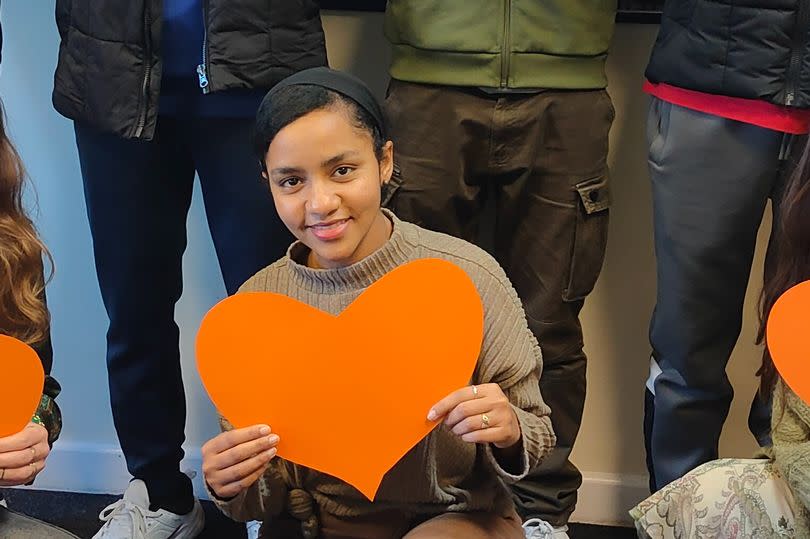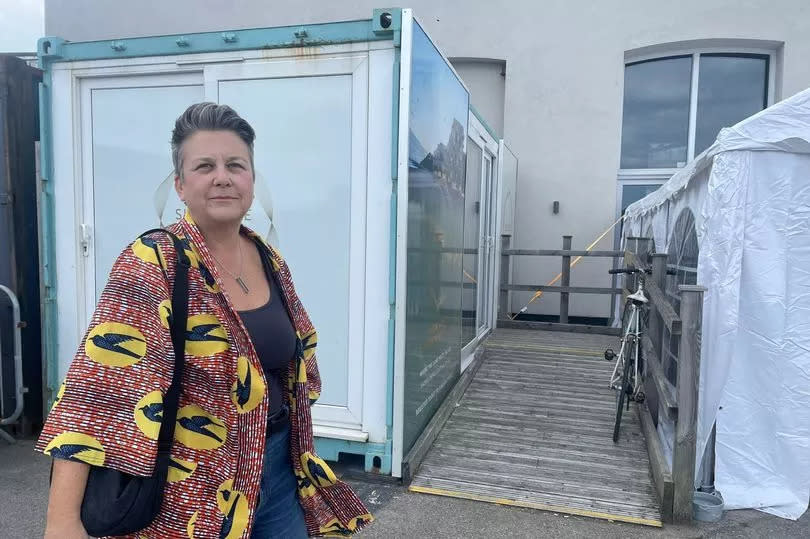‘The UK is no longer the end of the journey,’ Kent refugee reacts to Rwanda plan set to become law

Following a months-long deadlock, the British government’s plan to deport asylum seekers arriving through irregular routes in the UK to Rwanda has passed in parliament and is set to become law. This means those who entered the country through unofficial routes after January 1, 2022 from a “safe country” could be deported to the east African nation.
The new legislation is intended to override the Supreme Court ruling in November 2023 which deemed the scheme unlawful due to safety concerns. But campaigners and charities across Kent have vowed to fight the plan, with some saying it will not deter people from crossing the English Channel.
Originally from Eritrea, Rishan Tsegay fled Sudan at the age of 16 to seek safety in the UK. The teenager did not inform her family at the time and embarked on a perilous journey that took her through dangerous places including the “jungle” in Calais.
READ MORE: Kent doctor that saved volunteer who collapsed in hospital gym was in 'right place at right time'
Reacting to the news, the now 26-year-old nursing student who lives in Canterbury told KentLive: “The plan considers people as a number, rather than to consider their journey. I think the idea of the Rwanda plan is to stop people from coming to the UK, but I think it’s not going to happen because people have no option.
“Some people come to the UK because they have their family and there are so many reasons. It is shocking, why are there no protections, no safe routes.”
The Rwanda plan announcement only came hours before five people died including a child while trying to cross the Channel in a boat. The incident happened near Wimereux in France after the boat left the French coastline at around 5am.
More than 110 people were said to have been onboard and a total of 57 continued their journey to the UK despite the deaths. A spokesperson for Kent Refugee Action Network said: “As if our hearts weren’t heavy enough: the news that five people - including a girl aged just seven - have died attempting to cross the Channel - comes just hours after the safety of Rwanda bill was passed into law.
“This is the act that is meant to deter those attempting to get to England by small boats. The act is unworkable, expensive, divisive and - most importantly - puts those seeking safety in danger. It enables the government to forcibly expel people seeking asylum - including children - at grave risk of harm and human rights abuses.
“In doing so, it breaks international law. People will be removed to a country they have no connection to, despite the ruling of our country's Supreme Court that it is unsafe for them. The United Nations is urging the UK to rethink the act, saying the policy will have a harmful impact on refugee protection and human rights around the world.”
What is the Rwanda plan?
The bill was first introduced by former Prime Minister Boris Johnson more than two years ago in 2022, and has since been carried forward by two other prime ministers and as many Home Secretaries. Over the months, it has faced strong opposition and legal challenges.
The scheme aims to address the issue of people crossing the English Channel in small boats and many continue to risk their lives. The government’s plan wants to send some asylum seekers arriving in the UK through irregular routes to Rwanda and have their claims processed there.
Even if they are granted refugee status in Rwanda, they will not be able to return to Britain. The bill was introduced following an increase in the number of people crossing the Channel in small boats.
What happened on April 22 this year?
The legislation was approved on April 22, 2024. It ordered the courts to ignore key sections of the Human Rights Act.
Who’s eligible?
Any person who has arrived in the UK through "irregular routes" including crossing the Channel in small boats since January 1, 2022 will be considered for relocation to Rwanda. Those who travelled through a safe country to reach the UK or have a connection to a safe country "would be deemed inadmissible to the UK’s asylum system" and may be deported to a "safe third country".
When is the first deportation flight scheduled for?
Prime Minister Rishi Sunak said on April 22 the first flight would leave in around 10 to 12 weeks' time.
How much has been spent on the plan?
The UK is set to pay at least £370m to Rwanda as part of its plan to deport asylum seekers, according to a report from The National Audit Office. An initial payment of £120m was given to Rwanda back in 2022.
As of February, the UK had paid £220m to Rwanda's Economic Transformation and Integration Fund as part of the deal, with a further £150m of payments scheduled by 2026.
How many people have crossed the Channel so far this year?
As of April 21, 6,265 people had crossed the English Channel in small boats since the start of 2024. A Home Office spokesperson said: “The unacceptable number of people who continue to cross the Channel demonstrates exactly why we must get flights to Rwanda off the ground as soon as possible.
“We continue to work closely with French police who are facing increasing violence and disruption on their beaches as they work tirelessly to prevent these dangerous, illegal and unnecessary journeys. We remain committed to building on the successes that saw arrivals drop by more than a third last year, including tougher legislation and agreements with international partners, in order to save lives and stop the boats.”
Will it deter people from entering the UK via small boats?
Folkestone activist and councillor Bridget Chapman believes the plan is doomed to fail when it comes to stopping asylum seekers from crossing the Channel. She told KentLive: “This won’t stop anyone crossing the Channel.
"Very few displaced people in the world head for the UK. Those that do have a very specific reason for coming here such as having family members here or joining an existing community and this bill will not stop them.”

She added: “It's very depressing that the Rwanda Bill has passed. I believe it shames us as a country. But I also believe that it will be a pyrrhic victory for this Tory government. They have flung hundreds of millions of public money at this display of spite, all the time knowing that it wouldn't work.
“As a Labour councillor I've spoken to hundreds of people on their doorsteps here in Folkestone. Very few of them mentioned people arriving in boats. What they want is to be able to see a GP, to get a hospital appointment, to have their bus turn up on time, and to have good quality housing that they can afford.
“They don't want money that could be spent on these things wasted on toxic, dog whistle politics and my sense is that this bill will be the death knell of this government.”
How will it affect asylum seekers' mental health?
“It will make people feel like ‘I’m not safe’,” Rishan said. “From my experience it’s the same as when I was in Libya, I had no clue what was going on.”
After fleeing Sudan, Rishan, along with her friends, headed to the Sudanese Sahara and travelled all the way to Libya where she stayed for four months. The 26-year-old added: “Now people will be like ‘I’m not safe’ rather than ‘I made it to the UK and I’m safe’.

“The story does not end here. It will make young people escape from the hotel because they are scared. From experience, I’d be like ‘I made it to the UK but now there’s another thing going on.”
In response to the announcement that the Government’s Safety of Rwanda (Asylum and Immigration) Bill has passed, Dr Jan Wise, chair of the BMA’s Medical Ethics Committee, said: "It's deeply disheartening to witness the Government push through this Bill, with full knowledge of the severe, irreparable repercussions it risks imposing on people who are already vulnerable and fleeing dangerous situations."
Get more news, interviews and features for and about our underserved and diverse communities straight to your inbox with our Untold Stories newsletter, sign up here.

 Yahoo News
Yahoo News 
